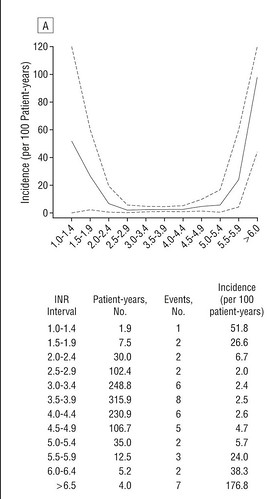Fifty-one thromboembolic events (TEs) were documented, resulting in a linearized incidence of 0.75 TEs per 100 patient-years, 22 of which were minor (0.32% per patient-year), 10 were moderate (0.15% per patient-year), and 19 were severe (0.28% per patient-year). Thromboembolism following AVR was significantly lower than after MVR (0.53% per patient-year vs 1.64% per patient-year). Patients reported 1,687 bleeding complications (24.8% per patient-year). The vast majority of bleeding complications (n = 1,509; 22.2% per patient-year) were classified as minor,
The intention-to-treat analysis of the results of the German Experience With Low Intensity Anticoagulation study leads to the unexpected result that despite a sophisticated reporting system, the incidence of moderate and severe TE and bleeding complications was comparably low in all INR strata and more or less within the so-called background incidence reported for an age-related "normal" population.
























